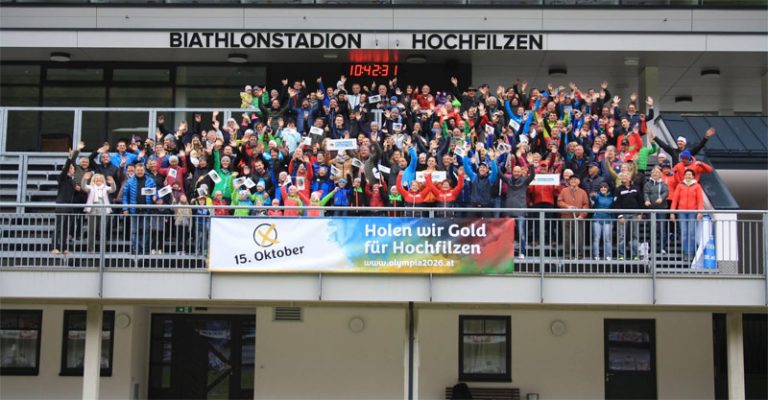The Canadian Olympic Committee (COC) Tuesday added its signature to a collaboration agreement among four First Nations in British Columbia, the City of Vancouver and the Municipality of Whistler to jointly conduct a privately funded feasibility study on hosting the 2030 Olympic and Paralympic Winter Games.

By joining the agreement first signed by stakeholders in December, the COC has marked a crucial next step in the process that allows the National Olympic Committee to bring the bid to the International Olympic Committee’s (IOC) Future Host Commission and enter the proposed project into a continuous dialogue with the decision-makers. The timing – just two days ahead of Thursday’s IOC’s all-members Session in Beijing and the subsequent opening of the Winter Olympics – will allow important discussions to begin immediately.
The agreement also underscores the COC’s recognition and support for the first-ever indigenous-led Olympic bid that will be interwoven with Canada’s Truth and Reconciliation initiatives and indigenous-rights legislation. The COC is providing full funding of key technical work and local engagement required to complete the feasibility assessment.
The four First Nations planning to lead the bid include Lil̓wat7úl (Líl̓wat), xʷməθkʷəy̓əm (Musqueam), Skwxwú7mesh (Squamish) and səlilwətaɬ (Tsleil-Waututh).
“We look forward to the Canadian Olympic Committee and Canadian Paralympic Committee joining us in our journey with the other host Nations and municipalities as we explore bringing the 2030 Olympic Games and Paralympic Games back to Greater Vancouver and Whistler,” Chief Jen Thomas of the Tsleil-Waututh Nation said in a statement.
“The work ahead of us will continue to be Nation led, as we continue with this historic initiative of an Indigenous led Olympic and Paralympic bid for the Vancouver 2030 Games.”
Tuesday’s development does not guarantee that Vancouver will bid to host its second Games. After the completion of a feasibility study that is already underway and a collaborative assessment of the proposed plans, a decision will be made by First Nations on whether to move forward with an international campaign to stage the 2030 Games. Insiders have said this decision could come as early as the Spring.
Even if things move quickly for Vancouver, the bid will be behind other international rivals who have already been in discussions with IOC decision-makers for some time. Former Winter Games hosts Salt Lake City in the United States and Sapporo in Japan are considered front-runners in the race with plans that have been in development for years. Both were forced to cancel trips by bid delegations to Beijing to observe the Games next week after the IOC called off the programme in order to comply with COVID-19 safety protocols.
Spain’s joint bid from Pyrenees-Barcelona is also in the running but has suffered from political infighting and will have to pass a referendum scheduled for the Spring. Ukraine has also expressed interest but may not be able to pursue a bid with the Russian military threat at its border.
Vancouver and Whistler plan to leverage existing facilities built when the region hosted the 2010 Games and a new Olympic Village could be constructed to provide a needed housing legacy for First Nations residents.
All bids will have an opportunity after the Beijing 2022 Games to learn how the Games have evolved and to further refine their projects.
An IOC spokesperson told GamesBids.com “All learnings from the Games will be incorporated into the Beijing 2022 Debrief in Milano-Cortina later this year, which will provide an opportunity for NOCs and potential future Olympic hosts to discover topics such as vision and culture; legacy and funding; operating a mountain cluster; impact and reach; and evolutions and innovations.”
A joint Milano-Cortina project in Italy has already been elected to host the 2026 Winter Games.


